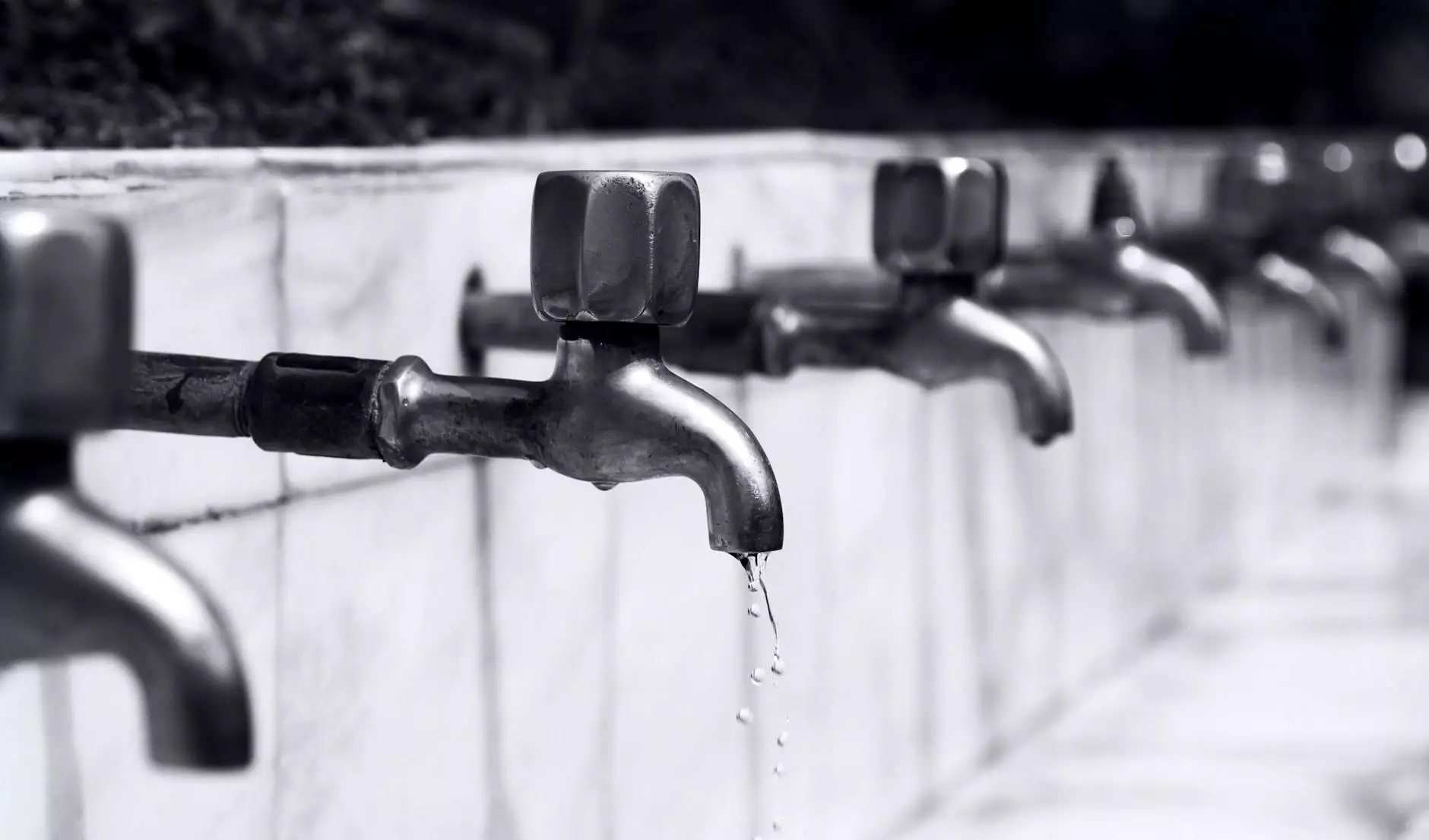Comprehensive Guide to Diesel Engine Cylinder Liner: Enhancing Performance and Durability

In the world of diesel engine technology, the diesel engine cylinder liner stands as a pivotal component that significantly influences engine efficiency, lifespan, and overall performance. As part of the broader diesel engine parts ecosystem, cylinder liners are vital for maintaining optimal combustion, reducing wear, and preventing damage from high-pressure operations. This article delves into the intricacies of diesel engine cylinder liners, exploring their types, manufacturing standards, maintenance practices, and the critical role they play in the success of various heavy-duty and industrial engines.
Understanding the Role of the Diesel Engine Cylinder Liner
The diesel engine cylinder liner is a cylindrical component inserted into the engine block, serving as a continuous contact surface for the piston while containing the combustion process within the engine. Its primary functions include:
- Providing a durable surface for the piston rings to slide against, thus reducing wear and tear.
- Sealing combustion gases to prevent leaks and maintain engine compression.
- Facilitating heat transfer from combustion to cooling systems, thereby preventing overheating.
- Protecting the engine block from direct exposure to high pressure and temperature variations.
Given these roles, the integrity and quality of the diesel engine cylinder liner directly impact engine efficiency, fuel economy, emission levels, and maintenance costs. Therefore, selecting the right liner material, design, and manufacturing standards is critical for engine longevity and optimal performance.
Types of Diesel Engine Cylinder Liners
There are several types of diesel engine cylinder liners, each suited for specific engine designs and operational requirements:
1. Dry Cylinder Liners
Dry cylinder liners are designed to project slightly above the engine block's surface and are not directly cooled by the coolant. They rely on conduction through the liner walls for heat dissipation. These liners offer:
- Ease of removal and replacement.
- Better control over liner wear.
- Suitable for high-performance engines with intense thermal loads.
2. Wet Cylinder Liners
Wet liners are immersed directly in the coolant, allowing more effective heat transfer. They are typically used in engines requiring rapid cooling and high thermal stability. Their advantages include:
- Superior heat dissipation.
- Ease of maintenance due to removable design.
- Compatibility with heavy-duty applications.
3. Integral Cylinder Liners
Integrated or 'sleeved' liners are cast as part of the engine block and are not removable. They are used in applications where high structural strength is essential. While less common for upgrade or maintenance, they offer:
- Enhanced strength and rigidity.
- Reduced risk of liner displacement.
- Lower manufacturing costs for specific engine designs.
Materials and Manufacturing of Diesel Engine Cylinder Liners
The durability and performance of diesel engine cylinder liners largely depend on the materials used and manufacturing precision. Typically, high-quality liners are made from materials such as cast iron, alloyed steels, or precision-machined composites, providing excellent wear resistance and thermal stability.
Key manufacturing considerations include:
- Surface finish: A smooth, precision-machined surface ensures proper sealing and reduces piston ring wear.
- Heat treatment: Processes such as nitriding or hardening improve wear resistance.
- Dimensional accuracy: Tolerance control is crucial for fitting and sealing efficiency.
- Corrosion resistance: Protective coatings or treatments prevent oxidation and corrosion over time.
Leading spare parts suppliers like client-diesel.com specialize in providing high-quality diesel engine cylinder liners that meet international standards such as ISO, ASTM, and SAE, ensuring compatibility and reliability across various engine brands and models.
Choosing the Right Cylinder Liners for Diesel Engines
Selection of the optimal diesel engine cylinder liner depends on several factors:
Engine Specifications and Power Requirements
The liner must match the size, bore diameter, and operational pressure of the engine to guarantee proper fit and function.
Type of Application
Heavy-duty industrial engines, marine engines, agricultural machinery, and automotive engines have unique demands that influence liner choice.
Thermal and Mechanical Load
High thermal loads require liners with superior heat transfer capabilities, often favoring wet liners with advanced materials.
Cost and Maintenance Considerations
While premium liners may have higher upfront costs, their longer lifespan reduces overall maintenance expenses, a vital consideration for commercial operators.
Maintenance and Replacement of Diesel Engine Cylinder Liners
Proper maintenance extends the service life of diesel engine cylinder liners and ensures consistent performance. Key practices include:
Regular Inspection
Friction, piston ring wear, and signs of corrosion should be routinely checked during engine overhauls or scheduled maintenance.
Cooling System Management
Ensuring the cooling system functions effectively prevents overheating and thermal stress, protecting the liner from premature failure.
Lubrication and Fuel Quality
Using high-quality lubricants and clean fuel minimizes deposit buildup and internal corrosion.
Replacement Criteria
Liners should be replaced when excessive wear, scoring, or corrosion compromises sealing and performance, typically identified through measurement and inspection tools.
Innovations in Diesel Engine Cylinder Liner Technology
The industry continually advances in manufacturing techniques and material science to produce superior liners. Notable innovations include:
- Advanced coating technologies: Plasma coatings and ceramic composites enhance wear resistance.
- Nano-material enhancements: Improved thermal conductivity and hardness at the microscopic level.
- Precision manufacturing: Computer numerical control (CNC) machining for ultra-fine tolerances.
- Eco-friendly materials: Reducing environmental impact with recyclable and low-emission materials.
Importance of Selecting Reliable Spare Parts Suppliers
In any diesel engine operation, the significance of sourcing high-quality spare parts cannot be overstated. Trusted suppliers like client-diesel.com offer:
- Certified components meeting international standards.
- Comprehensive product range for various engine makes and models.
- Technical support and consultation for selecting appropriate liners.
- Competitive pricing and reliable delivery ensuring minimal downtime.
Conclusion: The Critical Role of the Diesel Engine Cylinder Liner in Engine Efficiency
In essence, the diesel engine cylinder liner is an indispensable component that influences every aspect of engine performance, durability, and efficiency. Investing in high-quality liners, adopting proper maintenance routines, and working with reputable spare parts suppliers like client-diesel.com can dramatically improve engine longevity and operational costs.
By understanding the different types, manufacturing standards, and innovative technologies behind cylinder liners, engine operators and maintenance professionals can make informed decisions that extend engine life and optimize performance in demanding applications such as transportation, agriculture, marine, and industrial machinery.
Remember, the key to maximizing diesel engine productivity lies in choosing the right diesel engine cylinder liner, maintaining it diligently, and sourcing from trusted suppliers who prioritize quality and reliability.









